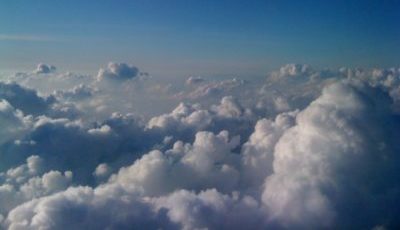
Intake: What a Sleep Study Reveals about How Medicine (de)Values Dreams
In last week’s episode … um, I mean post …
Click here to read the 1st post in this ongoing series about my upcoming sleep study in which I hope to find out, among other things, if all that dreaming is making me tired—and if so, will the cure rob me of the vivid and abundant dreams I so love and cherish.
A hopeful entrance
When I parked my car in front of the Sleep Center I felt a surge of hopeful anticipation.
I was here to find out if I was eligible to participate in the sleep study my doctor was recommending, and while I’m not usually one to look forward to a medical test, this one was different. Here, I thought, I’d meeting with doctors and other professionals who are as interested in sleep and dreaming as I am.
But as I sat in the waiting area filling in my “Sleep Inventory” before meeting with the sleep doctor who would determine whether I’m a candidate for a sleep study, I was struck by the fact that not a single question on the sheet addressed dreams. The two-sided questionnaire asked what time I go to bed, what time I wake up, how long it takes to fall asleep, what causes me to awaken at night, what my bed partner tells me about my sleep patterns (whether I snore, kick, etc.), whether I nap, how much caffeine and alcohol I consume and what medications I take. Beyond that I was asked about everything from whether I doze off watching television or as a passenger on an hour-long car trip, whether I have difficulty chewing, whether I hear voices or see hallucinations during the day, and if I experience joint pain or balance issues. My vision of a sleep center as a place where sleep and dreams were being studied, valued, and nurtured, was quickly dissipating.
In spite of the fact that the average person spends more than 2 hours a night dreaming, not a single question on the two-sided single-spaced document addressed dreams
I mentioned this to the Registered Nurse who called me into her office to discuss the Sleep Inventory, take my blood pressure, look at my throat and discuss my sleep patterns. “That is interesting,” she said. But she didn’t seem particularly interested.
Dreams as symptom
The nurse now launched into her own set of questions, one of which finally referenced dreams: She asked if I dream when I nap. I told her that no, I rarely dream during my infrequent short naps, which are usually less than half an hour long. That was a good sign, she said. It’s normal not to dream during a nap, because it takes about 90 minutes to cycle through the first sleep stages and enter REM sleep, the period when most dreams take place. So, if I did fall directly into dreams at nap time, that could be a sign of narcolepsy, a condition where you fall asleep unintentionally during the day, she explained.
While on the subject of narcolepsy, she also asked me if my knees buckle or if I tend to drop things when I experience high states of emotion. Turns out, people who suffer from this condition often have high dream recall and report vivid dreams.
So, in this case, dreams were being raised only as a possible symptom of a possible health problem. When I asked whether my prolific dreaming could be contributing to my daytime drowsiness, she mentioned that my ability to recall so many vivid dreams might be linked to another problem: Sleep apnea. That’s because people with apnea wake frequently throughout the night, and these frequent awakenings, usually during REM sleep, aid dream recall.
Sleep Center v Dream Temple
I left the Sleep Center contemplating the fact that dreams had been invoked only as a symptom of sleep abnormalities. I couldn’t help but think of ancient times when there were sleep temples, not sleep centers, where people came to find healing and guidance in their dreams.
But here I am in the 21st century, forced to consider that my unusual level of dream recall, which I count as a gift, might also be indicative of a problem.
I have read stories about saints and mystics who had healing or prophetic visions, and who later learned they had a brain tumor or other illness, that was causing them. When the tumor was removed or the illness cured, the mystical experiences disappeared. And so, I have to accept the possibility that if the sleep study reveals a sleep abnormality, the cure–which on the one hand could restore my energy and mental acuity during waking hours, could rob me of the beautiful dreams of adventure, beauty, guidance, and connection, which I count among the great pleasures of my life.
Zzzz
And so, the plot thickens. Stay tuned to see what the sleep study reveals about my dreamy brain …
To read the next installation in this 5-part series click here.
For the previous post in the series click here.
not a tumor, Tzivia, just a brain that has high activity in the venromedial frontal lobes (and other areas, sorry I forgot which) that is a sign of ease of getting lucid while dreaming and of metacognition while awake.